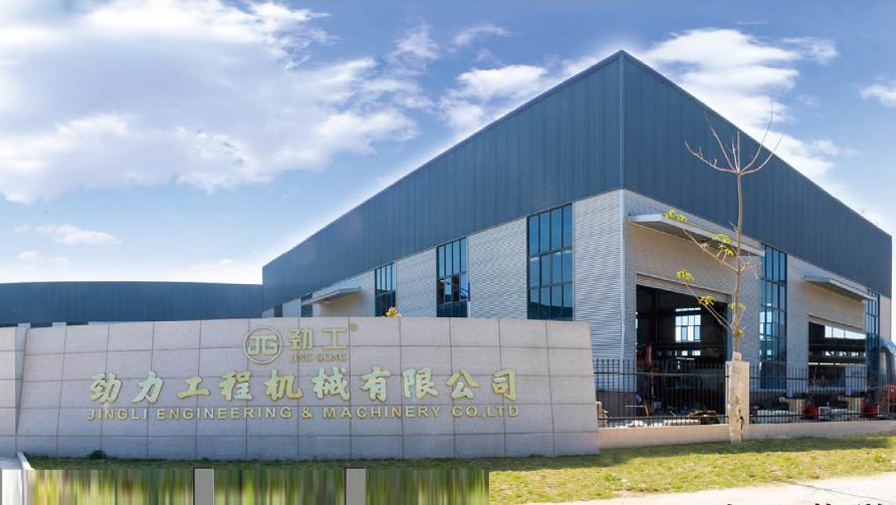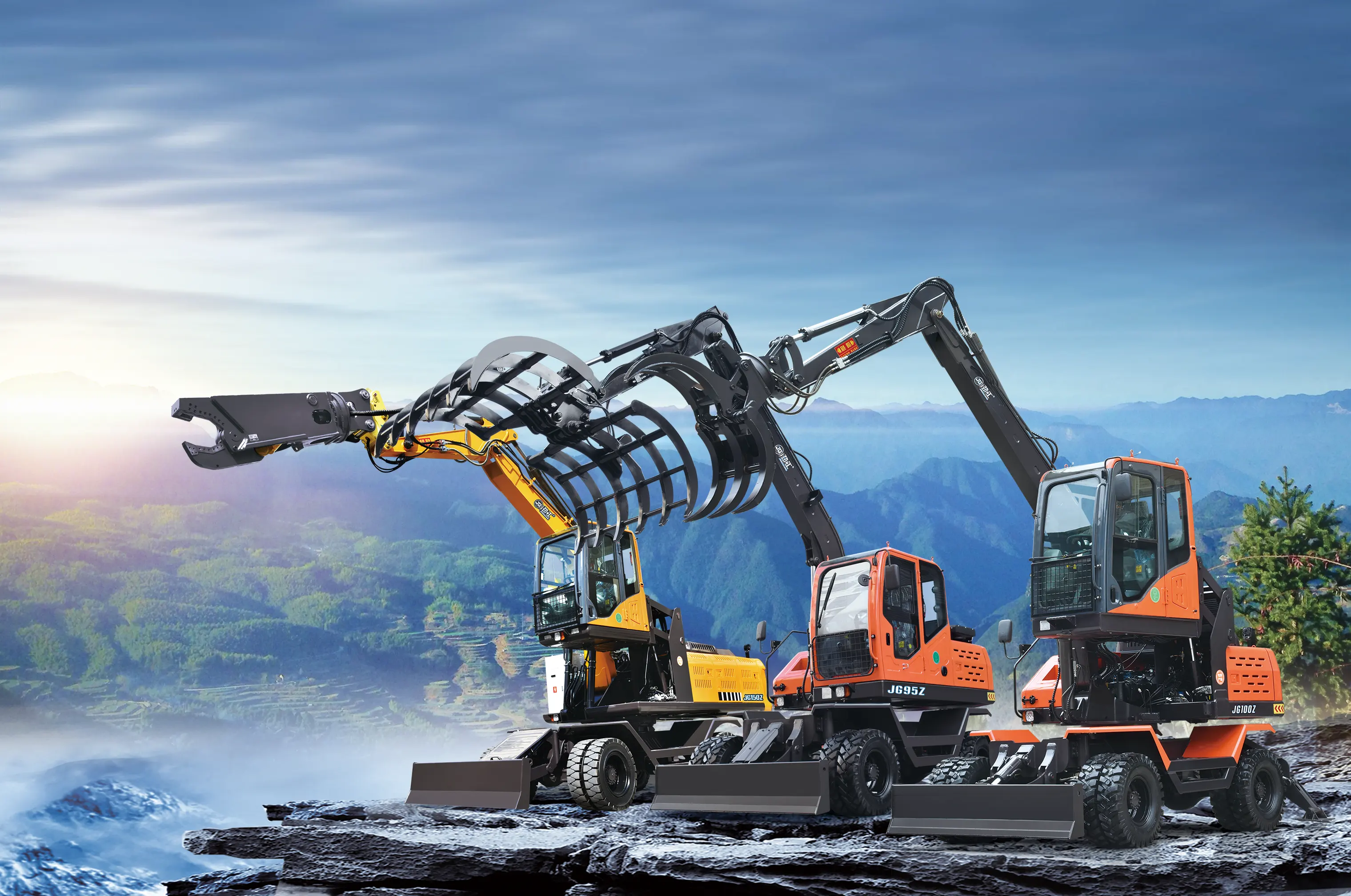
Online Inquiry
Examining the Quality Control Measures of Hydraulic Crawler Excavator Suppliers
TIME:2025-08-11 10:20
Examining the Quality Control Measures of Hydraulic Crawler Excavator Suppliers
Table of Contents
- 1. Introduction to Hydraulic Crawler Excavators
- 2. Why Quality Control Matters in Excavator Manufacturing
- 3. Key Quality Control Measures Employed by Suppliers
- 4. Testing and Certification Standards
- 5. Selecting Reliable Hydraulic Crawler Excavator Suppliers
- 6. Industry Best Practices in Quality Assurance
- 7. Challenges Facing Quality Control in Excavator Manufacturing
- 8. Future Trends in Quality Control for Hydraulic Crawler Excavators
- 9. Conclusion
- 10. Frequently Asked Questions
1. Introduction to Hydraulic Crawler Excavators
Hydraulic crawler excavators play a fundamental role in modern construction and engineering projects. Known for their versatility and efficiency, these machines are essential for tasks such as digging, grading, and material handling. However, the effectiveness of hydraulic crawler excavators heavily relies on the quality of their manufacturing. As such, understanding the quality control measures implemented by suppliers is paramount for purchasers looking to ensure operational excellence and durability in their construction equipment.
2. Why Quality Control Matters in Excavator Manufacturing
Quality control is the backbone of any manufacturing process, particularly in industries that rely on heavy machinery. In the case of hydraulic crawler excavators, stringent quality control measures guarantee that each machine meets the required performance standards and minimizes the risk of failure in the field. Poor quality control can result in machinery breakdowns, increased maintenance costs, and compromised safety, making it essential for suppliers to enforce robust quality assurance protocols throughout their production processes.
3. Key Quality Control Measures Employed by Suppliers
To maintain high standards of quality, hydraulic crawler excavator suppliers deploy a variety of quality control measures throughout the manufacturing process. These measures include:
3.1 Material Inspection
Before any assembly begins, suppliers conduct thorough inspections of the materials used in the manufacturing process. This includes verifying the quality of steel, hydraulic components, and electronic systems to ensure they meet industry standards. Any subpar materials are rejected to prevent future issues.
3.2 Process Monitoring
Continuous monitoring of manufacturing processes is vital. Suppliers use advanced technologies such as real-time data analytics and automated inspection systems to keep track of production quality. This proactive approach allows for immediate corrective actions if anomalies are detected.
3.3 End-of-Line Testing
Once an excavator is fully assembled, it undergoes extensive end-of-line testing. This step verifies that all systems operate correctly under various conditions. Tests typically include checking hydraulic systems, engine performance, and operational controls, ensuring that the machine is ready for real-world applications.
4. Testing and Certification Standards
Compliance with international testing and certification standards is a critical aspect of ensuring quality in hydraulic crawler excavators. Suppliers must adhere to guidelines set forth by organizations such as ISO (International Organization for Standardization) and SAE (Society of Automotive Engineers). These standards outline requirements for safety, performance, and environmental considerations.
4.1 ISO Certification
ISO certification ensures that the manufacturer consistently meets global quality standards. For excavator suppliers, obtaining ISO 9001 certification demonstrates a commitment to quality management and continuous improvement.
4.2 Performance Testing
Beyond certification, performance testing is essential. Suppliers often conduct various tests, such as load tests and durability assessments, to ensure that excavators can withstand the rigors of demanding construction environments.
5. Selecting Reliable Hydraulic Crawler Excavator Suppliers
Choosing the right supplier for hydraulic crawler excavators involves evaluating several critical factors. Companies should consider the following selection criteria to ensure they partner with reliable manufacturers:
5.1 Reputation and Experience
A supplier's reputation in the market is often indicative of their quality control practices. Companies with extensive experience and positive reviews are more likely to deliver reliable products.
5.2 Quality Assurance Programs
Investigating the supplier's quality assurance programs can provide insight into their commitment to quality. Suppliers that implement comprehensive quality control measures are typically more trustworthy.
5.3 After-Sales Support
After-sales support, including warranty policies and maintenance services, is essential when selecting a supplier. A robust support system can contribute to the longevity of hydraulic crawler excavators in the field.
6. Industry Best Practices in Quality Assurance
Adopting industry best practices in quality assurance can significantly enhance the reliability of hydraulic crawler excavators. Some well-established practices include:
6.1 Continuous Training and Development
Investing in the continuous training of employees ensures that all team members remain informed about the latest quality control techniques and technologies. This commitment to ongoing education fosters a culture of excellence.
6.2 Supplier Quality Management
Manufacturers often collaborate closely with their suppliers to establish quality standards for raw materials. By ensuring that suppliers adhere to these standards, manufacturers can reduce the risk of quality issues in the final product.
6.3 Utilization of Advanced Technologies
Incorporating advanced technologies such as Artificial Intelligence (AI) and Machine Learning (ML) into the quality control process helps identify defects and inefficiencies early on, streamlining production and enhancing overall quality.
7. Challenges Facing Quality Control in Excavator Manufacturing
While quality control is essential, several challenges can impede effective quality management in hydraulic crawler excavator manufacturing:
7.1 Supply Chain Disruptions
Global supply chain disruptions can lead to delays in the availability of quality materials. This can force manufacturers to compromise on standards, affecting the final product's reliability.
7.2 Variability in Production Processes
Variability in manufacturing processes can result in inconsistencies in product quality. Establishing standardized procedures is crucial to minimizing this variability.
7.3 Rapid Technological Advancements
The rapid pace of technological advancements poses a challenge for suppliers to keep up with the latest quality control measures and equipment. Staying updated is essential for maintaining competitive advantage.
8. Future Trends in Quality Control for Hydraulic Crawler Excavators
As technology continues to evolve, several trends are shaping the future of quality control in hydraulic crawler excavator manufacturing:
8.1 Predictive Analytics
Utilizing predictive analytics can enhance decision-making in quality control by forecasting potential quality issues before they arise, allowing for preventive action.
8.2 Integration of IoT
The Internet of Things (IoT) is set to revolutionize quality control by providing real-time data on machine performance and component health, enabling suppliers to monitor quality continuously.
8.3 Automation in Quality Inspection
Incorporating automated inspection systems can help improve accuracy in quality assessments, reducing human error and ensuring consistent quality across production lines.
9. Conclusion
The quality control measures employed by hydraulic crawler excavator suppliers are paramount in ensuring that these machines meet the demands of modern construction projects. By implementing stringent inspections, testing protocols, and adhering to international standards, suppliers can guarantee that their excavators are reliable and efficient. As the industry continues to evolve, embracing emerging technologies and best practices will further enhance the quality assurance process, benefiting suppliers and customers alike.
10. Frequently Asked Questions
10.1 What are hydraulic crawler excavators used for?
Hydraulic crawler excavators are primarily used for digging, grading, lifting, and material handling in construction and engineering projects.
10.2 How important is quality control in excavator manufacturing?
Quality control is crucial as it ensures the reliability and durability of excavators, reducing the risk of breakdowns and enhancing safety on job sites.
10.3 What certifications should I look for when choosing an excavator supplier?
Look for suppliers with ISO certifications and compliance with industry performance standards to ensure quality manufacturing practices.
10.4 How can I assess a supplier's quality control measures?
Investigate their quality assurance programs, reputation, and after-sales support to gauge their commitment to high-quality standards.
10.5 What are the challenges in maintaining quality control in excavator manufacturing?
Supply chain disruptions, variability in production processes, and rapid technological advancements pose significant challenges in maintaining quality control.










